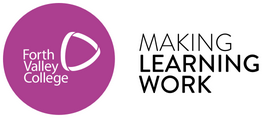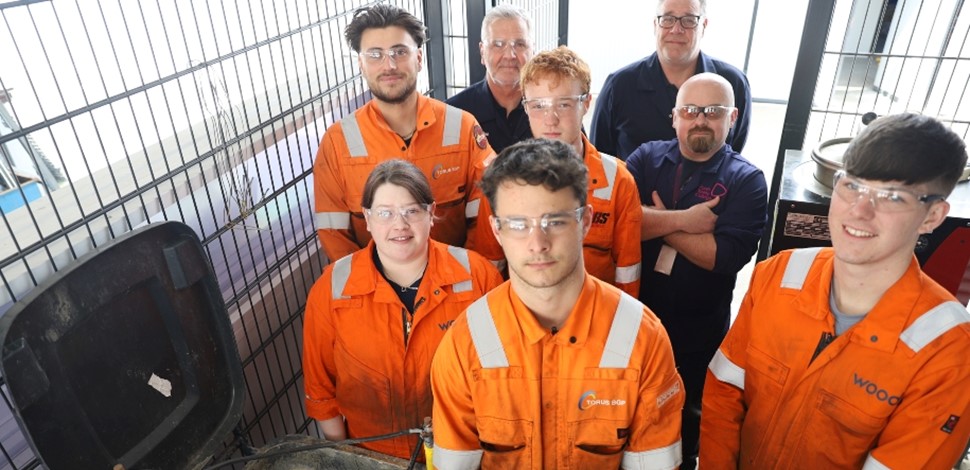Switched on Mechanical Engineering Modern Apprentices at Forth Valley College have developed an innovative electrolysis technique to give them more time learning in their workshops.
The group of five MAs: Owen Rodgers (18) and Matthew Lodge (23) who work for Bilfinger, Rachel Frieslick (30) and Tommy Dickinson (20) who work for the Wood Group, and Max Alldred (20) who works for PBS Ponticelli, had been set a task by their engineering Lecturers - Patrick Connelly, Robert Neilson and Stephen McBurnie - to clean the paint and rust off metal pipes, before setting to work with them as part of their course.
However, the traditional method of doing this with hand tools such as chisels and wire brushes, was taking “ages”, so they put their thinking hard hats on and developed an efficient cleaning method using a wheelie bin full of saltwater, some copper wire and a car battery.
Owen, said: “The old paintwork we were tasked with working on was caked in paint and rust and it was taking a long while to get it off using tools. We were aware of the principal of electrolysis and hit upon an idea to clean the pipes, which would allow us to work on other more productive things, and approached our lecturers with the concept.”
Matthew, said: “We set up a bin and filled it with water and salt, wrapped the pipes in copper wire and hooked that up to a car battery and it very quickly removed the paint from the pipes.”
Rachel went on: “It really was a pretty good feeling to know we wouldn’t have to spend hours and hours scraping the pipes and we could work and study other aspects of our course.”
Max, continued: “I think our lecturers were pretty proud of us for coming up with this idea, even though they might not say so. We have been very innovative here.”
Tommy added: “I am very proud of us all, as we have all worked very well together to save us countless man-hours on a laborious task and crack on with more important things.”
Their lecturers have been so impressed by the ingenuity of the group,that they are hoping to develop the technique to free up more time for efficient learning for future groups of MAs who attend FVC to study engineering.
Patrick Connelly, said: “The students have proved that quite often the most monotonous of tasks leads to the best innovations. By challenging them with a necessary task that was 'boring' and time-consuming, it was great to see some outside-the-box thinking. A simple setup incorporating a wheelie-bin and car battery sounds rather Heath Robinson, but it worked! The team's creation will be taken further by future tranches of students to improve on things like the power supply etc, which is a direct reflection of any new equipment as it is taken from conception to the finished article. They deserve to be rightly proud of this achievement. I have enjoyed my time with them immensely and wish them all the best as they leave us to begin their work placements.”
Robert Neilson, added: “What started as a way to make a laborious task easier became engineering efficiency. I was impressed by the groups drive to develop the idea after the realisation that this was a genuine improvement.”
Des McCabe, STEM and Construction Curriculum Manager, said: “This is a brilliant demonstration of invention and ingenuity from the learners to turn a time consuming and labour intensive task into an interesting and enjoyable process. To see their knowledge of Chemistry being applied in an Engineering environment is a fantastic example of Synergy across the Department.”




